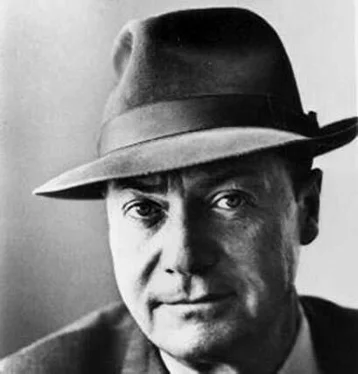“Last night. You said he told the police that he was responsible for her death.”
“Did I say that? You must have misunderstood me.” But she wouldn’t meet my eyes.
It was just as well, because I almost missed the first Santa Teresa stoplight. I braked the car to a screaming stop, half over the white line. “All right, I misunderstood you. Let me get it straight about the weapon. Had it been lying around the house?”
“Yes.”
“In Lucy’s room?”
“I don’t know where it was, Mr. Archer. It might have been anywhere in the house. It was usually on the mantel in the living room, but Lucy could easily get it if she wanted to do herself an injury.”
“Why would she want to?”
The light changed, and I turned right, in the direction of the courthouse.
“Because she was afraid. I told you that.”
“But you don’t know what of?”
“No.”
“Her past is simply a blank? She didn’t tell you anything, except that she was a lady’s maid from New Orleans?”
“No.”
“Or why she came to you?”
“Oh, I know why she came to my house. She was referred. Dr. Benning referred her to me. She went to him as a patient.”
“What was the matter with her?”
“I don’t know. She didn’t seem ill to me, the way she carried on.”
“Maybe I’d better talk to this doctor first. Did you tell the police that he sent Lucy to you?”
She was watching the bright stucco street as if it might narrow at any moment into an arc-lit alley, ambushed at each end. “I didn’t tell them anything much.” Her voice was glum.
Following her directions, I drove across the railroad tracks which cut through the center of town. The double band of steel was like a social equator dividing Santa Teresa roughly into lighter and darker hemispheres. Dr. Benning’s house, which also contained his office, stood in the lower latitudes, a block above the station, two blocks off the main street. It was a gray old three-storied building standing in a block of rundown shops. The faded sign on the wall beside the front door, Samuel Benning, M.D. , seemed large, even for California.
A young woman opened the door as I pulled up to the curb. She had straight black hair, trimmed short, and black-rimmed harlequin spectacles that gave her face an Asiatic cast. Though her body looked rather lumpy in an ill-fitting white uniform, I noticed that her waist and ankles were narrow.
“Who’s she?” I asked the woman beside me.
“I never saw her before. Must be a new receptionist.”
I got out and approached her. “Is Dr. Benning in?”
“He’s just going out to lunch.” Her spectacles or the blue eyes behind them glittered coldly in the sun.
“It’s rather important. A woman has been killed. I understand that she was one of his patients.”
“She boarded with me.” Mrs. Norris had come up behind me. “Miss Lucy Deschamps.”
“Lucy Deschamps?” The chill spread from her eyes across her face, drawing her unpainted mouth into a thin blue line. “I don’t recall the name.”
“The doctor probably will.” I started up the walk that crossed the narrow yard.
As if of its own accord, her body moved to bar my way. She spoke on an indrawn breath: “How was she killed?”
“Cut throat.”
“How awful.” She turned away, towards the house. Her feet groped for the verandah steps like a blind woman’s.
Dr. Benning was in the entrance hall, brushing a felt hat that badly needed brushing. He was a thin, high-shouldered man of indeterminate age. A fringe of reddish hair grew like withering grass around the pink desert expanse of his bald scalp.
“Good morning.” His pale eyes shifted from me to the Negro woman. “Why, hello, Mrs. Norris. What’s the trouble?”
“Trouble is the right word, doctor. The boarder you sent me last month, she was killed. Alex has been arrested.”
“I’m sorry to hear it, naturally. But I didn’t send you anyone last month. Did I?”
“That’s what I told her,” the receptionist put in. “I never heard the name Lucy Deschamps.”
“Just a minute, Miss Tennent. I think I remember now. She probably came here on a Wednesday, when you were off. I may have forgotten to make a note of her visit.” He turned to Mrs. Norris, who blocked the doorway. “Was she that light-brown woman from San Francisco?”
“I don’t know where she was from. All she said was that you sent her to me. She came to my house in a taxi and I let her move in.” There was a veiled accusation in Mrs. Norris’ tone: no doctor should send a potential murderee to a respectable landlady.
“You can hardly say I sent her to you. She’d just got off the train, and was looking for a place to stay, and I may have mentioned your place as a possibility. What’s this about Alex being arrested?”
Mrs. Norris told him. The receptionist stood flat against the wall at his elbow, steadily watching his face.
The doctor clucked sympathetically. “Too bad. He’s a fine boy. I’ll go down and talk to the D.A. if you like.” He turned to me again: “You a detective?”
“A private one. I’m working for Mrs. Norris.”
“Found out anything?”
“I hoped I would from you. Where the woman came from, what she was doing here, what was the matter with her.”
“She came here in the middle of the afternoon, said she got off the San Francisco train. Just a minute, I’ll check my records.” He placed his hat on his head, dropping ten years.
I followed him into the waiting room, where he rummaged in a battered filing cabinet behind the receptionist’s desk. The rest of the furniture was equally dilapidated. There was a worn linoleum rug on the floor.
He looked up with a deprecatory smile: “I’m sorry, I have so many cash patients, I don’t keep complete records. I do remember this woman though. She had some kind of female trouble, a slight irregularity. She’d blown it up in her head into a malignant disease. I set her mind at rest as well as I could, and gave her a hormone prescription, and that was all there was to it. Typical hypochondriac.”
“She wasn’t seriously ill, then.”
“I’d stake my reputation on it.” The room mocked his words, and he grinned sheepishly. His teeth were poor. “Of course it’s possible,” he added slowly, “that she didn’t accept my reassurances, and killed herself out of pure funk. In any case, it’s certainly rough on Jenny.”
“Mrs. Norris is a friend of yours?”
“Yes, I’d call her a friend. She’s often nursed patients for me, in their homes. Jenny’s not a trained nurse, but she’s a dependable woman. Used to teach school in Detroit. Her son’s quite brilliant, I hear. Scholarship student. He’s Jenny’s pride and joy.”
“Evidently. You say the woman came here on a Wednesday.”
“It must have been–” he consulted the desk-calendar “–Wednesday, August 16, I’d say. Five weeks ago yesterday.”
“Thanks, Doctor. One other thing. Would you class her as a suicidal type?”
“I didn’t talk to her for very long, and I’m no psychiatrist. All I can say is that it’s possible. She was prone to phobias, certainly.”
I left him standing in the unsuccessful room, hatted and ill-at-ease in his own house. Miss Tennent and Mrs. Norris were close together in the hallway, talking in low tones about Lucy’s death. The white-uniformed girl leaned towards the dark woman with an eagerness that almost amounted to sickness. When I brushed past her she shied away.
Santana was closeted with a Superior Court judge in the judge’s chambers. The District Attorney was holding himself incommunicado in his office. The Deputy D.A. I talked to wouldn’t say a word about the case, except to indicate that Alex was still in jail, for all kinds of excellent reasons. I finally found the Sheriff eating lunch in a lunch-bar across the street from the courthouse.
Читать дальше












